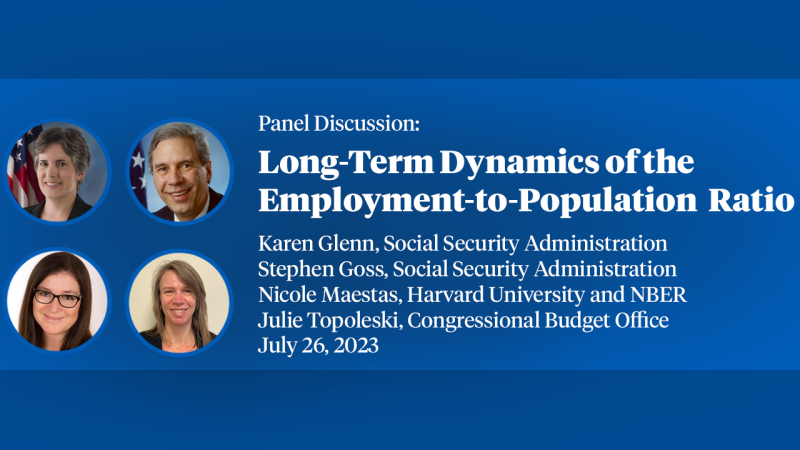Corporate Governance, Economic Entrenchment, and Growth
Control pyramids drive a wedge between the families' dominant control rights and the often-small amount of actual wealth invested in the companies they control.
In (NBER Working Paper No. 10692), Randall Morck, Daniel Wolfenzon, and Bernard Yeung analyze the common phenomenon around the world of small numbers of controlling shareholders, usually wealthy families, governing vast groups of listed corporations. They review the growing literature on the impact of control by these elites on corporate and economy performance. The researchers are especially interested in what they term "economic entrenchment", as manifested in the tiny elites' political influence on public policy, such as property rights protection, and on institutions like capital markets. The researchers then consider the problems that arise from such entrenchment.
Analysis of data from dozens of countries leads Morck, Wolfenzon, and Yeung to conclude that economic growth is evidently related to the distribution of control over an economy's corporate assets. In the United States and Britain, the researchers note, a family may well control a sizeable portion of an individual firm's shares. Elsewhere, however, it is common for a family to control numerous corporations. Indeed, most large corporations in these countries - many are in Asia but many are in Europe, as well -- have controlling family owners who use pyramidal structures, cross shareholding, and super voting rights to maintain command over many listed companies. These control pyramids drive a wedge between the families' dominant control rights and the often-small amount of actual wealth invested in the companies they control.
This division can lead to two simultaneous governance problems: a divergence of the interests of the controlling shareholder from that of the public shareholders, and the entrenchment of the controlling shareholder. The controlling shareholders are in a position to exploit corporate resources they do not own for private use via the pyramidal structures. This results in inefficient resource allocation at the firm level. In these instances, the controlling powers are not just elites, the researchers assert, but are properly deemed oligarchs.
In many countries, the researchers note, large pyramidal groups effectively entrust the governance of substantial parts of their corporate sectors to a few extremely wealthy families. But poor or shortsighted governance of a few family patriarchs may well yield inefficient economy-wide capital allocations, reduced investment in innovation, and retarded economic growth. Additional problems include the limits that may be placed on access to information, allocation of resources, monitoring of managers, and borrowing and investing practices. Moreover, to preserve the status quo, these elite families evidently can influence public policies so as to curtail the advancement of private property rights, of capital markets, and of economic openness. In order to maintain their advantageous positions, the elites also likely use their political connections to hold back the institutional development of capital markets and to erect a variety of entry barriers. Such a situation is especially harmful, the researchers say, in countries where public shareholders have inadequate legal rights in seeking redress from inept or corrupt corporate insiders.
Such economic entrenchment is a significant factor in many of the world's economies. But Morck, Wolfenzon, and Yeung see economic entrenchment as a phenomenon beyond the realm of wealthy controlling families or oligarchies. Tiny elites of professional managers in Japan, for example, or bureaucrats running state-controlled pyramids in France, might be considered similarly entrenched. The essential issue, say the analysts, is the negative consequences for growth arising from entrusting an economy's capital allocation to a small elite that cannot be removed from the levers of power.
Morck, Wolfenzon, and Yeung further assert that the typical corporate governance conflict in the U.S. economy -- that is, between individual shareholders and a corporation's professional managers - is of lesser importance in most other countries. Because in most other countries the large firms are controlled by a few wealthy families, any corporate governance conflicts are generally between the controlling shareholder of the pyramidal group and the public shareholders. Equally important, it can be argued that highly concentrated control over corporate assets can encourage distortions in a number of markets, most notably in capital markets. Such concentrated control may also curtail investment in innovation and enhance rent seeking. All of these effects naturally enough discourage economic growth.
The researchers note that globalization poses a special challenge for entrenched elites, especially those based on inherited positions. Openness to global capital flows and to international trade generally raises productivity and should boost a nation's overall economic performance. But evidence suggests that embracing globalization raises expectations and demands among local investors for better corporate governance, information, and the like - just the sort of expectations and demands a country's entrenched economic elite is likely to oppose.
Finally, the researchers note that public policy on issues like property rights, the development of financial markets and institutions, and economic openness, is usually thought of as an outcome of political economy. In this light, public policy in many countries cannot be thought of as a discretionary variable that can be tuned to cure economic problems. Rather, Morck, Wolfenzon, and Yeung theorize, it seems important to try to identify those factors that are adjustable and that might lead to a transition to a better balanced and more open political economy.
-- Matt Nesvisky


